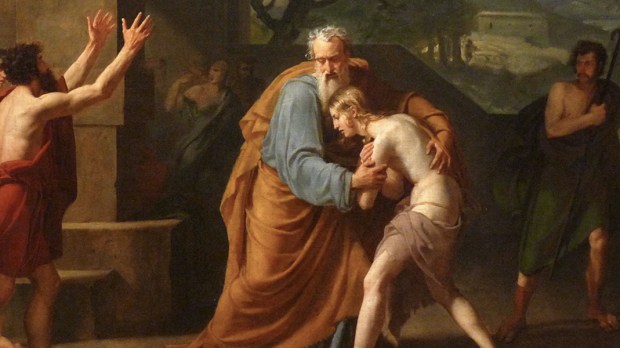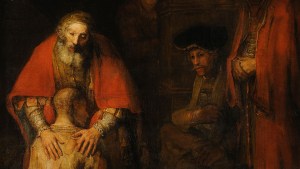The parable of the Prodigal Son has many different lessons we can learn, though it can be tempting to think the parable is meant for other people and not us.
However, Jesus gave this example so that we would examine our own lives, to see if our faith is more like that of the “lost” son or the son who stayed at home.
Both sons, according to Benedict XVI, represent two different types of “immature” faith. He explains this lesson in an Angelus message from 2010.
In this parable the sons behave in opposite ways: the younger son leaves home and sinks ever lower whereas the elder son stays at home, but he too has an immature relationship with the Father. In fact, when his brother comes back, the elder brother does not rejoice like the Father; on the contrary he becomes angry and refuses to enter the house. The two sons represent two immature ways of relating to God: rebellion and childish obedience.
In different times of our lives we may find ourselves in open rebellion, choosing to walk away from God, or we may become too prideful, thinking that we are somehow better than the “sinners” in the Church.
The good news is that God’s mercy can conquer both iterations of immature faith, as Benedict XVI points out.
Both these forms are surmounted through the experience of mercy. Only by experiencing forgiveness, by recognizing one is loved with a freely given love a love greater than our wretchedness but also than our own merit do we at last enter into a truly filial and free relationship with God.
Wherever we are in our journey of faith, we need to open our hearts to God’s mercy and let his love conquer any obstacles that stand in our way.


